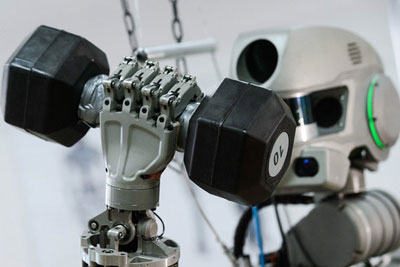Digital economy budget might reach 1.2 trln rubles
The lion’s share of the funding is for the creation of information infrastructure
The federal budget might spend 1.2 trillion rubles on the Digital Economy program in 2019–2024, yet only a bit more than 120 billion rubles have been allotted for 2019–2021, and the remaining amount of 1.08 trillion rubles has yet to be provided. Expenditures will be much smaller in 2018: 8.4 billion rubles, most of which (7.3 billion rubles) has been envisaged in the budget.
The money will fund six areas of the digital economy.
The most expensive will be the creation of information infrastructure, i.e. telecom networks, data centers, fifth-generation communication systems, and data platforms, which will cost 627.9 billion rubles. A new area of digital government (IT technologies for the government and supervisory agencies) will cost 233.1 billion rubles. Digital economy workforce (improvement of the education system and creating a system motivating the acquisition of digital knacks) will require 138.9 billion rubles. It will be necessary to spend 125.3 billion rubles on digital technologies (which will create new markets or drastically transform the existent ones, such as big data, artificial intelligence, and quantum technologies). The least expensive areas are cyber security (protection of individuals and the nation from IT threats) that will cost 18 billion rubles, and norms and regulations (a legal regime for the development and implementation of new technologies) that will cost only 1.5 billion rubles.
The estimate was presented in materials for a conference chaired by Deputy Finance Minister Andrei Ivanov last week. Russian daily Vedomosti saw a copy of the document, the authenticity of which was confirmed by a conference participant and an official in the financial-and-economic block. According to the conference participant, this is an intermediate document that may be considerably changed upon coordination with the Russian Finance Ministry. The other source familiar with officials from relevant federal agencies said the order of values would not be altered.
President Putin in his executive order of May 2018 ordered drafting the Digital Economy national project. The government will submit the draft program to the Presidential Council for Strategic Development and Priority Projects by October 1.
The government program approved in 2017 is currently in effect. Prime Minister Dmitry Medvedev has distributed the first 3 billion rubles allotted for the digital economy. He signed a directive in March 2018 to divide the funds between several companies and agencies supervising the program’s implementation. For instance, the state corporation Rosatom will receive 505 million rubles, the Russian Ministry of Digital Development, Communications and Mass Media – 1.95 billion rubles, the FSB – 3 million rubles, the Russian Transport Ministry – 15 million rubles, the Russian Economic Development Ministry – 15.5 million rubles, the Presidential Property Management Department – 134.5 million rubles, Rosreestr – 399.6 million rubles, and the Russian Industry and Trade Ministry – 13.6 million rubles.
It is quite realistic to allot 1.2 trillion rubles from the federal budget within five years, as the government can afford an annual investment averaging 200 billion rubles (especially in case of long-term planning), according to the head of the Economic Expert Group’s fiscal policy division, Alexandra Suslina. Yet the actual funding will depend on the political will and the priority of these expenses to the decision-makers, she said.
A representative of the Finance Ministry referred Vedomosti to the press service of the Ministry of Digital Development, Communications and Mass Media, which declined to comment.
